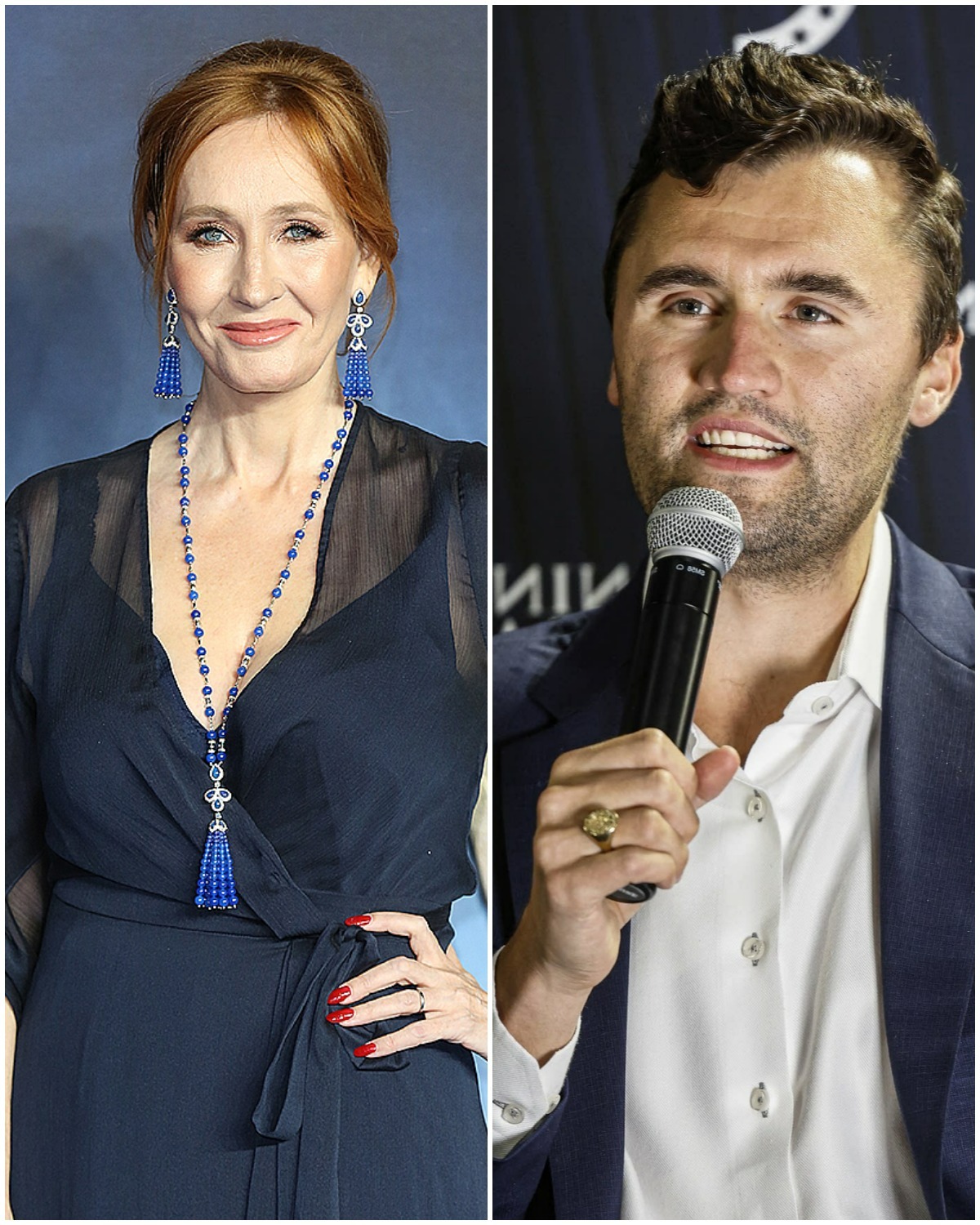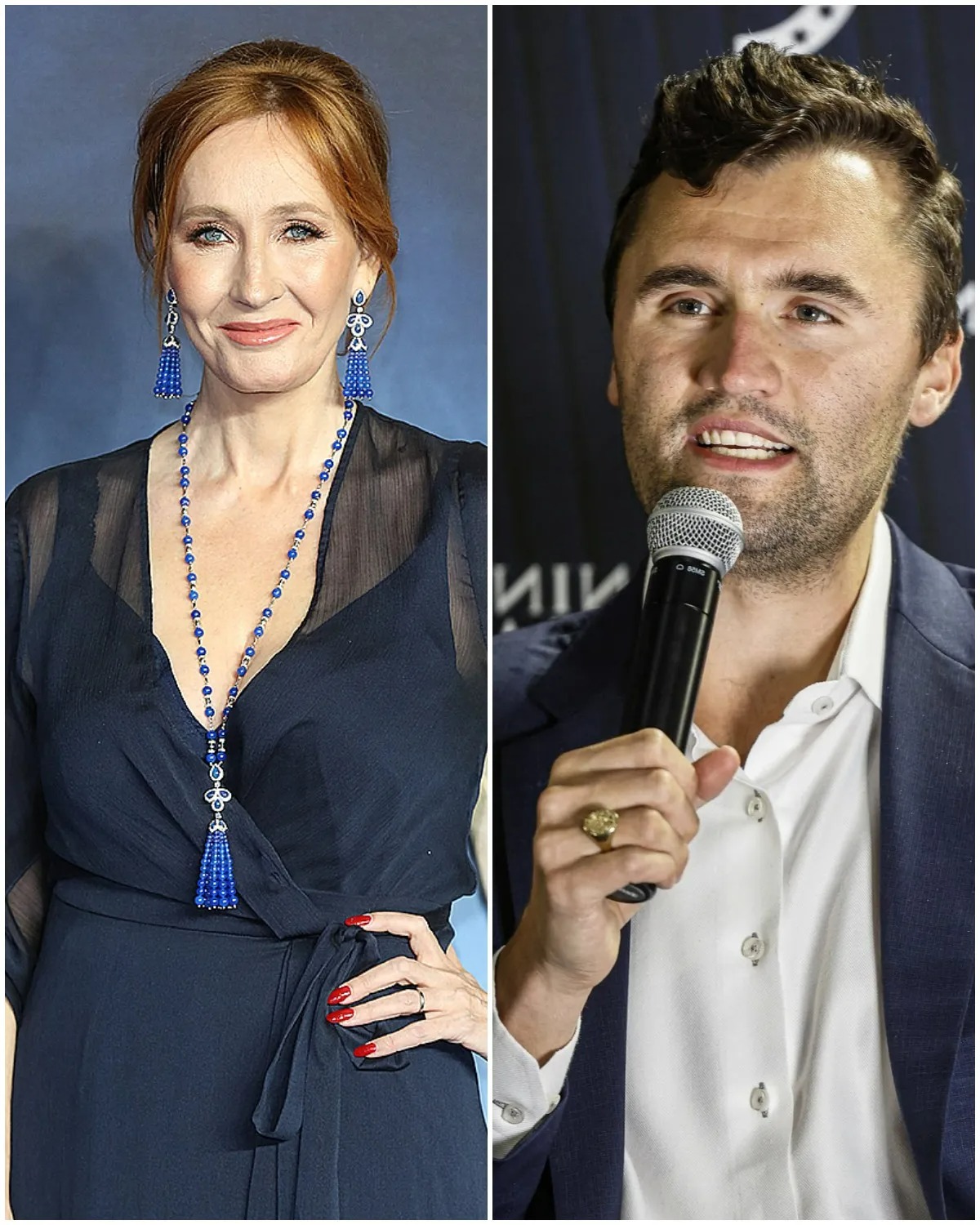
In an era where outrage seems to be the currency of public discourse, J.K. Rowling—author, activist, and frequent lightning rod—has once again thrust herself into the center of a global debate. This time, her target is not a government, a movement, or even her own critics, but the creeping hypocrisy surrounding the concept of free speech. In a series of pointed remarks, Rowling laid out a framework that slices through the noise and exposes the dangers of illiberalism, fundamentalism, totalitarianism, and political violence.
“If you want opponents dead, you’re not a liberal—you’re a terrorist,” Rowling declared. The words are stark, unambiguous, and, in today’s climate, profoundly necessary.
But what does it mean to defend free speech in a time when every utterance can spark a firestorm? How did we arrive at a moment where the principles of liberal democracy—once cherished across the political spectrum—are now up for debate? And why is Rowling’s intervention so critical, not only for writers and thinkers, but for anyone who values the fragile fabric of civil society?
The Anatomy of a Statement
Rowling’s remarks, delivered via social media and amplified across newspapers and talk shows, are more than just soundbites. They are a manifesto against the erosion of liberal ideals. “If you believe free speech is for you but not your political opponents, you’re illiberal,” she wrote. “If no contrary evidence could change your beliefs, you’re a fundamentalist. If you believe the state should punish those with contrary views, you’re a totalitarian. If you believe political opponents should be punished with violence or death, you’re a terrorist.”
Each sentence is a scalpel, dissecting the layers of modern political identity. They are not just definitions—they are warnings.
Rowling’s words come at a time when the boundaries of acceptable speech are being redrawn by activists, politicians, and corporations alike. From college campuses to online platforms, the battle over who can speak—and what they can say—has become a proxy war for deeper ideological divides.
The Rise of Illiberalism
To understand the urgency behind Rowling’s statements, one must first grapple with the concept of illiberalism. Liberalism, at its core, is the belief that individuals should be free to express their ideas, challenge orthodoxy, and pursue truth without fear of censorship or reprisal. Illiberalism, by contrast, is the impulse to restrict those freedoms, often in the name of “protecting” society from harm.
Rowling’s critique is directed at those who claim to champion liberty while seeking to silence dissent. In recent years, this contradiction has become increasingly visible. Progressive activists have called for the deplatforming of speakers whose views they find offensive. Conservative lawmakers have pushed for bans on books and curricula that challenge their worldview. Each side claims to be defending “freedom,” but the reality is a narrowing of the public square.
The hypocrisy is not lost on Rowling. Her own experience—being vilified for her views on gender and sex—has made her acutely aware of the dangers of selective free speech. “If free speech is only for those who agree with you,” she warns, “then it is not free speech at all.”
Fundamentalism and the Death of Debate
Rowling’s second charge—that the refusal to accept contrary evidence is a form of fundamentalism—cuts to the heart of modern polarization. In a world awash with information, the temptation to retreat into ideological bunkers is strong. Social media algorithms feed us what we want to hear. Cable news channels reinforce our biases. The result is a culture where debate is replaced by dogma.

Fundamentalism, in this sense, is not merely religious. It is the elevation of belief over reason, certainty over curiosity. Rowling’s warning is clear: when we close ourselves off to new evidence, we become prisoners of our own convictions.
This phenomenon is especially dangerous in politics, where the stakes are high and compromise is rare. The refusal to engage with opposing views leads to gridlock, resentment, and, ultimately, the breakdown of democratic norms.
Totalitarian Temptations
“If you believe the state should punish those with contrary views, you’re a totalitarian.” With this line, Rowling draws a straight line from censorship to tyranny. History is littered with examples of governments that sought to control thought—Stalin’s Soviet Union, Mao’s China, the theocracies of the Middle East. Each began with the suppression of dissent and ended with the destruction of freedom.
In the West, the threat is less overt but no less real. Laws against “hate speech,” while well-intentioned, can be weaponized to silence legitimate criticism. Corporate censorship, driven by fear of backlash, can erase voices from the digital public square. The line between protecting citizens and policing thought is perilously thin.
Rowling’s intervention is a reminder that the defense of free speech is not just about individual rights—it is about preserving the conditions for democracy itself. When the state becomes the arbiter of acceptable opinion, liberty dies.
The Logic of Violence
Rowling’s final warning is the most chilling: “If you believe political opponents should be punished with violence or death, you’re a terrorist.” The escalation from rhetoric to violence is not theoretical—it is a reality that has played out on streets and campuses across the world.
From the attack on the offices of Charlie Hebdo in Paris to the riots in Charlottesville, Virginia, the willingness to use force against those with opposing views is a cancer on civil society. It is the antithesis of liberal democracy, which depends on the peaceful resolution of conflict.
Rowling’s words are a call to reject the logic of violence, to reaffirm the principle that disagreement is not a crime, and that the solution to bad ideas is better ideas—not bullets or bombs.
The Price of Speaking Out
Rowling herself is no stranger to the consequences of controversial speech. Since voicing her opinions on gender and sex, she has faced boycotts, threats, and relentless harassment. Critics accuse her of bigotry; supporters hail her as a defender of women’s rights. The intensity of the backlash is a testament to the power of words—and the risks of challenging orthodoxy.
Yet Rowling refuses to be cowed. Her insistence on engaging with critics, debating ideas, and defending the right to disagree is a model for public discourse. In a time when many retreat from controversy, she stands firm.
Her experience is a microcosm of a broader trend: the shrinking space for honest conversation. Writers, academics, and activists across the spectrum report self-censorship, fear of reprisal, and pressure to conform. The chilling effect is real—and it threatens the vitality of democratic life.
Free Speech in the Digital Age
The debate over free speech is not new, but the digital revolution has transformed its contours. Social media platforms are now the primary arena for public debate, but they are also private companies with their own rules and incentives.
Twitter, Facebook, and YouTube have all grappled with the challenge of balancing open expression with the need to combat hate, misinformation, and abuse. The result is a patchwork of policies that often seem arbitrary and inconsistent.
Rowling’s critique applies here as well. When platforms silence voices based on political pressure or popular outrage, they risk becoming gatekeepers of thought. The danger is not just censorship—it is the erosion of trust in the institutions that shape our public life.
The Global Context
Rowling’s remarks resonate beyond the borders of Britain or the United States. Around the world, the struggle over free speech is playing out in different forms. In Hungary and Poland, populist governments have cracked down on independent media. In China, dissent is ruthlessly suppressed. In Russia, critics of the regime are jailed or exiled.
Even in democracies, the impulse to silence opposition is growing. Laws against “fake news” and “extremism” are used to target journalists and activists. The line between protecting society and controlling it is blurring.
Rowling’s intervention is a reminder that the defense of free speech is a global imperative. It is the foundation of liberty, the safeguard of minority rights, and the engine of progress.
The Moral Case for Free Speech
At its core, Rowling’s argument is not just political—it is moral. Free speech is the mechanism by which societies test ideas, expose injustice, and pursue truth. It is the right of the dissenter, the whistleblower, the artist, and the reformer.
When we abandon free speech, we abandon the possibility of change. We lock ourselves into systems of power and privilege, unable to challenge the status quo. The result is stagnation, resentment, and, ultimately, revolt.
Rowling’s words are a plea for humility—the recognition that no one has a monopoly on truth, and that progress depends on the clash of ideas. It is a call to listen, to debate, and to disagree without fear.
The Limits of Tolerance
Of course, free speech is not absolute. Societies have always drawn lines—against incitement, libel, and threats. The challenge is to distinguish between genuine harm and mere offense.
Rowling acknowledges this complexity, but insists that the answer is not to silence dissent. “If you want opponents dead, you’re not a liberal—you’re a terrorist.” The line is clear: violence is never justified, and the defense of free speech must be unwavering.
The test of a society’s commitment to liberty is not how it treats popular ideas, but how it handles unpopular ones. The willingness to defend the rights of those we disagree with is the measure of true liberalism.
The Way Forward
So where do we go from here? Rowling’s intervention is a challenge—to activists, politicians, and ordinary citizens alike. It is a call to rebuild the foundations of civil society, to restore the norms of debate, and to reject the temptations of censorship and violence.
This requires courage. It means standing up for principles even when they are unpopular. It means engaging with opponents rather than dismissing them. It means defending the right to speak, even when the words are uncomfortable.
It also requires humility—the recognition that we might be wrong, that others have something to teach us, and that the pursuit of truth is a collective enterprise.
Conclusion: A Fragile Freedom
J.K. Rowling’s words are a reminder that freedom is fragile, and that the defense of free speech is the responsibility of every generation. In a time of polarization, outrage, and fear, the temptation to silence dissent is strong. But the cost is too high.
If we want to preserve the possibility of progress—if we want to build societies that are just, vibrant, and free—we must defend the right to speak, to challenge, and to disagree. We must reject the logic of violence, the lure of totalitarianism, and the comfort of fundamentalism.
Rowling’s intervention is not just a defense of her own rights—it is a defense of ours. The question is whether we will rise to the challenge.